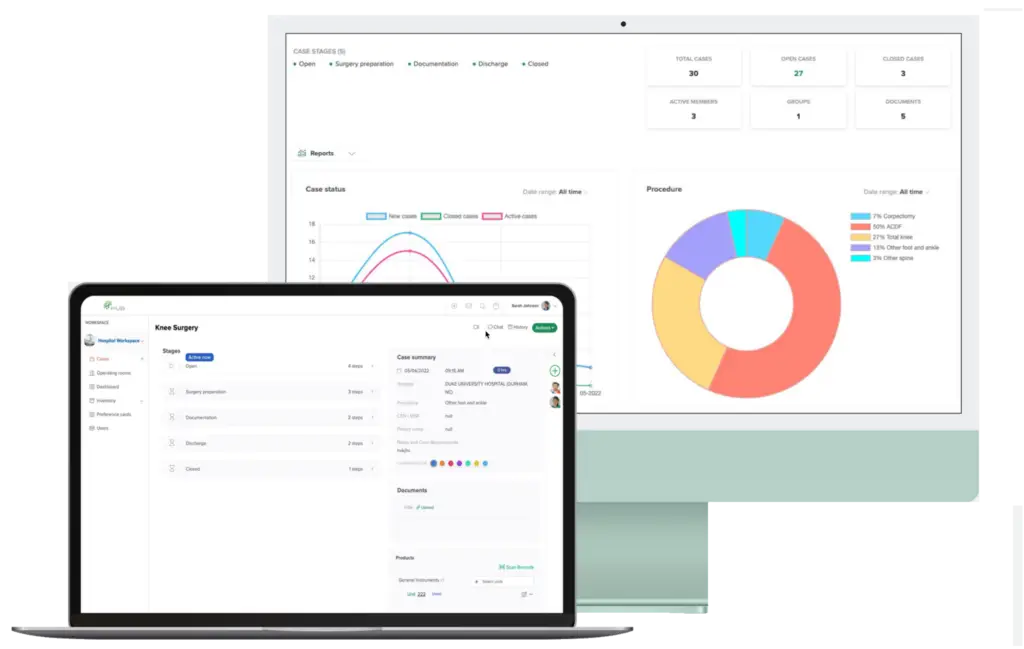The Role of Quality Assessment in ASC CMS Compliance
Introduction
Quality Assessment and Performance Improvement (QAPI) programs are at the heart of CMS compliance for Ambulatory Surgery Centers (ASCs). They are not just regulatory mandates but essential tools for enhancing patient care and operational efficiency. This article outlines the role of QAPI in meeting CMS standards and how ASCs can leverage these programs to drive improvements and compliance.

Understanding QAPI in ASCs
QAPI programs are comprehensive, data-driven approaches to improving the quality of care in health care settings, and CMS requires ASCs to implement them as part of their compliance strategy. These programs involve systematically examining performance metrics, patient outcomes, and processes to identify areas for improvement.
Key Components of QAPI Programs:
- Performance Measurement: Regularly tracking key performance indicators relevant to surgical care and patient outcomes.
- Quality Improvement Projects: Initiating projects aimed at addressing specific areas where improvements can be made.
- Data Utilization: Using data to drive decisions and track the effectiveness of interventions.
The Importance of QAPI for CMS Compliance
CMS views QAPI programs as a cornerstone of high-quality healthcare delivery. For ASCs, this means that an active and effective QAPI program is not just recommended but required. Compliance with CMS guidelines hinges on the ability of an ASC to demonstrate that it not only has a QAPI program in place but that the program is actively used to improve care.
Implementing a Successful QAPI Program
The implementation of a QAPI program should be a strategic and systematic process:
- Assessment: Start with a thorough assessment of current practices and outcomes to establish a baseline.
- Planning: Develop clear, measurable objectives for what the QAPI program should achieve.
- Execution: Engage staff at all levels in quality improvement activities and ensure they have the necessary resources and training.
- Evaluation: Monitor the effectiveness of interventions and adjust strategies as needed.
- Documentation: Keep detailed records of all QAPI activities as evidence of compliance and improvement.
Challenges and Solutions in QAPI Implementation
ASCs may face several challenges in implementing QAPI programs, such as limited resources or resistance to change. Overcoming these hurdles often requires strong leadership, staff engagement, and sometimes the integration of technology that can streamline data collection and analysis.
Case Study: QAPI in Action
To illustrate the impact of a well-executed QAPI program, learn from success with our case study on QAPI programs. This case study provides insights into how an ASC can transform its operations and compliance with CMS through effective quality assessment.
Conclusion
The role of QAPI in ASC CMS compliance cannot be overstated. These programs form the backbone of ongoing efforts to improve patient care and ensure that ASCs meet the rigorous standards set forth by CMS. For further guidance and resources on QAPI programs and quality improvement, visit QSEP.cms.gov.
By investing in robust QAPI programs, ASCs not only adhere to CMS regulations but also commit to a culture of excellence and continuous improvement, paving the way for better patient outcomes and sustainable operations.
How HUB Healthcare Can Help
HUB Healthcare offers a comprehensive solution designed to enhance communication in healthcare, streamline care coordination, and improve overall workflow efficiency. Our platform includes features such as medical case management software, healthcare document management, and healthcare analytics to ensure that all aspects of patient care are optimized. By leveraging HUB Healthcare’s robust tools, organizations can reduce workflow bottlenecks, automate repetitive tasks, and facilitate better collaboration among healthcare providers. This not only improves work quality but also enhances patient outcomes, making HUB Healthcare an essential partner in achieving healthcare excellence.






